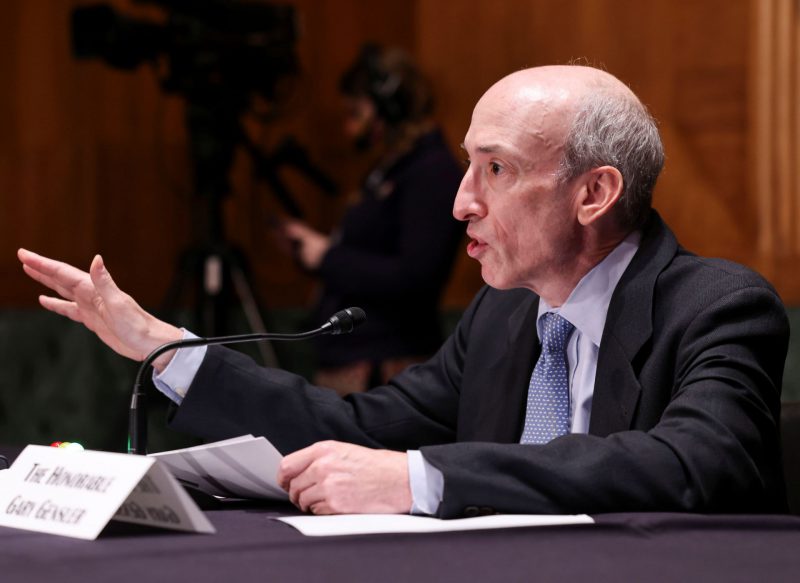The US Securities and Exchange Commission (SEC) has officially denied crypto exchange Coinbase’s petition request for more transparent crypto rules and regulations. Moreover, SEC Chair Gary Gensler released a statement on the denial of the rulemaking request, citing sufficient regulations in the market presently.
Within his released statement, Gensler added two additional reasons for the denial. Conversely, he stated there is no evidence that crypto investors “are less deserving of the protections of our securities laws.” Additionally, he referenced the Supreme Court SEC vs. Howey decision in his statement.
Also Read: Gary Gensler, SEC Taking a “New Look” at Spot Bitcoin ETFs
SEC Rejects Coinbase Request for Increased Crypto Rules and Regulations
Throughout the last two years, the digital asset sector has been vocal in its request for crypto-specific regulations in the United States. Amid long-standing conflict with the SEC, companies involved in the industry have been faced with enforcement-focused regulation. Ultimately, pleading with the agency to shift its focus.
Yet, it appears as though change is not on the horizon in terms of the agency’s view of the market. Indeed, the SEC has officially denied crypto exchange Coinbase’s request for transparency in crypto rules and regulations. Moreover, SEC Chair Gary Gensler released a statement that displays he has missed the point entirely.
Also Read: U.S. Judge Threatens SEC For False Arguments In Debt Box Case
Within his response, Gensler highlighted three reasons for the denial. Primarily, he stated that existing laws already “apply to the crypto securities markets.” Thereafter, he noted two Supreme Court cases that signify the governance of these securities laws on crypto.
Specifically, Gensler stated Congressional creation of securities laws was to govern investments, “in whatever form they are made and by whatever name they are called.” Conversely, he expressed his disagreement with “the petition’s assertion that now is the right time for the regulatory action it suggests.”





